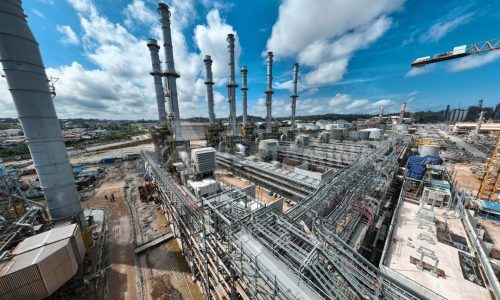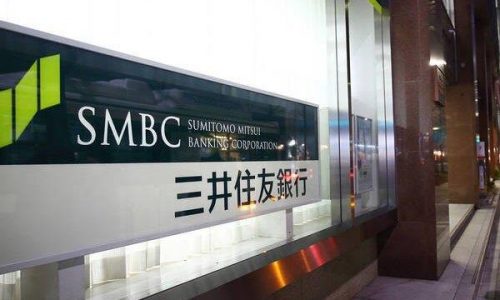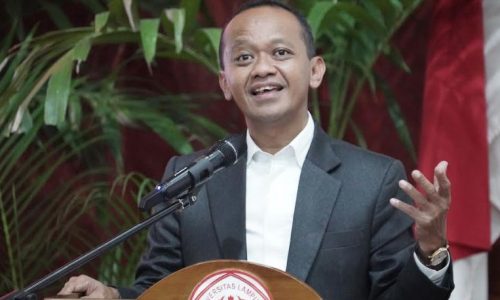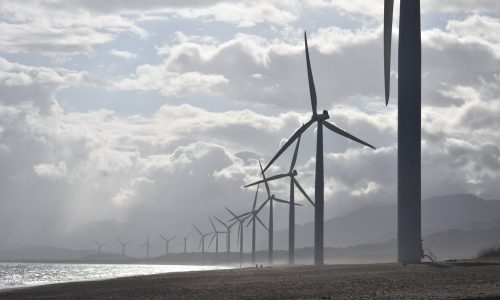The Alliance to End Plastic Waste (Alliance) announced a US$ 36 million commitment to support Indonesia in reducing 70% of plastic pollution in the ocean by 2025. It also commited to support Indonesia to achieve almost zero plastic waste by 2040. The funding aims to develop a portfolio of solutions and sustainable projects in the country. The projects will catalyze up to five times public and private sector investment to end plastic waste in the environment. The announcement was made during the Tri Hita Karana (THK) Forum on the sideline of the G20 Summit in Nusa Dua, Bali, on November 14, 2022.
Alliance is a global non-profit organization with a mission to end plastic waste in the environment. Founding members include BASF, Chevron Phillips Chemical, ExxonMobil, Dow Chemical, Mitsubishi Chemical Holdings, Proctor & Gamble and Shell. Its focus is on implementing projects and investing in innovative solutions to develop or improve waste management systems. The organization is a global network of industry leaders across the plastics value chain. It works closely with governments, civil society, entrepreneurs and communities to advance a circular economy for plastic waste. As of June 2022, the Alliance’s portfolio consists of more than 50 projects in 30 countries.
The THK Forum is a G20 side event that focuses on sustainable efforts. It aims to encourage collaboration among the global investment community including investors, donors, project developers and industry leaders to accelerate the achievement of the forum’s leadership agenda.
Ending plastic waste
The Alliance will support various projects across the archipelago, including through its flagship program, Clean Indonesia: Elimination of Plastic Waste (Bersih Indonesia). The project kicked off with Phase One in Malang, East Java. The joint programs between Alliance and its partners aim to:
- Treating plastic waste from the environment up to 60,000 tons by 2025;
- Meet the recycling rate of up to 50% in project implementation by 2025;
- Reaching up to 2.7 million Indonesians through behavior change programs.
The Bersih Indonesia program is derived from the STOP Jembrana project, Alliance’s first project in Bali, and other Alliance’s projects in Indonesia. Coordinating Ministry for Maritime Affairs and Investment and Malang regency signed the memorandum of understanding (MoU) in May 2022. The Phase One program was to build an integrated waste management system in the regency, including household waste collection services for 500,000 houses. Alliance provided a US$ 29 million grant to build supporting infrastructure, including five transfer stations, five Materials Recovery Facilities and a waste fleet of more than 1,100 vehicles.
The program will be expanded to two more districts to provide a comprehensive waste management system for another 3.9 million Indonesians. Alliance will also run an education campaign on the management and sorting of household waste to increase public literacy while promoting better collection and sorting.
Through the program, Alliance hopes to build a financially sustainable waste management system for emerging markets that covers the costs of collecting household waste, sales of plastic waste to suppliers in a competitive market and the government’s contribution to operating costs. It also hopes to replicate the model nationally.
Alliance also supports Systemiq’s research on blended finance investment models to build infrastructure for waste collection and segregation. It will soon publish a white paper related to this research. In collaboration with the government, this white paper is an initial effort to design a viable and replicable financing scheme for waste management in disadvantaged areas.
Challenging state in plastic waste management
The World Bank stated that Indonesia is currently battling one of the greatest environmental challenges, which is marine plastic debris. The government issued a new legislation on waste management in 2018. Two years later, it banned single-use plastic in supermarkets. However, the implementation of the policy is not strict in traditional markets.
Indonesians are still heavily reliant on single-use plastics. Many products are available in sachets for single use from shampoo, detergent to coffee. The consumers are mostly lower and middle classes, who prefer to buy tiny quantities on a daily basis.









